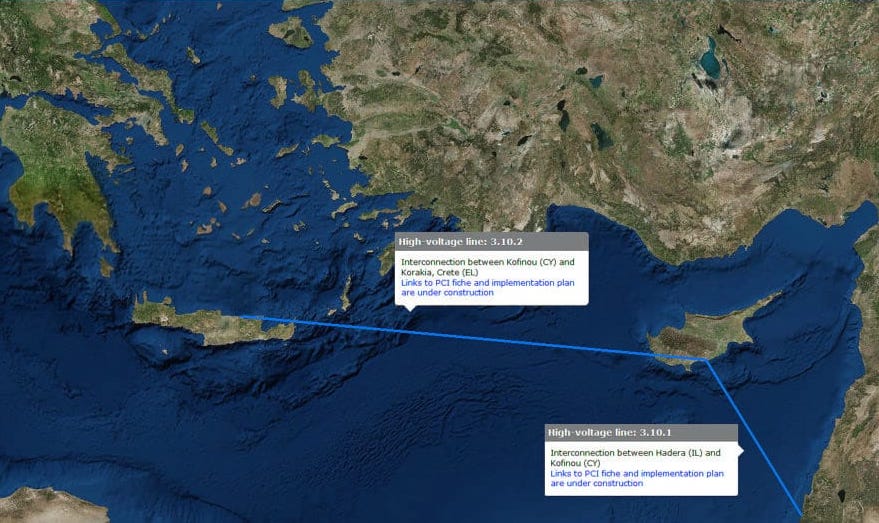Greece reaffirmed on Monday its commitment to building a subsea electric cable planned to link continental Europe to the East Mediterranean, following reports that the project was halted over financial and geopolitical concerns.
Greek power grid operator (Admie) has commissioned the building of the Great Sea Interconnector (GSI) cable, which will link transmission networks of Europe to Cyprus in a project costing €1.9 billion, and later stretch to Israel through the Mediterranean.
Admie is 51 per cent owned by the Greek state.
But progress has been delayed by a long-standing dispute between Greece and Turkey, both Nato allies, over the limits of their continental shelves in the Mediterranean.
Vessels leased by Nexans to carry out research in sea waters off the island of Crete to help determine the route of the cable were allegedly forced to leave earlier than scheduled this year, after Turkey challenged Greece’s jurisdiction over the area.
The cable contract alone with Nexans – manufacturing and laying – is worth a reported €1.4 billion.
The link has been a source of unusual disagreement between Greece and Cyprus, with Cyprus seeking assurances on the project’s viability.
Shares in French cable maker Nexans fell last Thursday after a Greek newspaper reported that Admie missed a payment until further notice. Nexans later said it had received substantial payments that allowed it to continue production of the cable and that it would respect the project’s contractual obligations.
Asked about the fate of the link, Greek government spokesman Pavlos Marinakis told a bi-weekly news conference on Monday, “I reaffirm all stakeholders’ commitment to the successful conclusion of this infrastructure project of strategic importance.”
Greek, Cypriot and Israeli foreign ministers are due to meet in Athens on Thursday to discuss the issue.
In a recent interview with the Geotrends news website, Israeli ambassador to Greece Noam Katz seemed to indicate his country’s invigorated interest in the interconnector project.
Katz said that, although he could not give a timetable regarding implementation, there was a “robust commitment” from Greece, Israel and Cyprus to push forward.
Greek media meanwhile suggested that Athens and Nicosia decided on a ‘cooling down period’ in relation to the interconnector and Turkey’s objections, until the new US administration clarifies its stance on the matter.
Commenting on the latest developments, Cyprus’ Energy Minister George Papanastasiou described the interconnector as a “highly complex project with a number of challenges”.
He said that in addition to the technical challenges, there are also financial and geopolitical ones. The latter two are interrelated, he added.
Finding investors is inextricably linked to the geopolitical situation, Papanastasiou stated.






Click here to change your cookie preferences